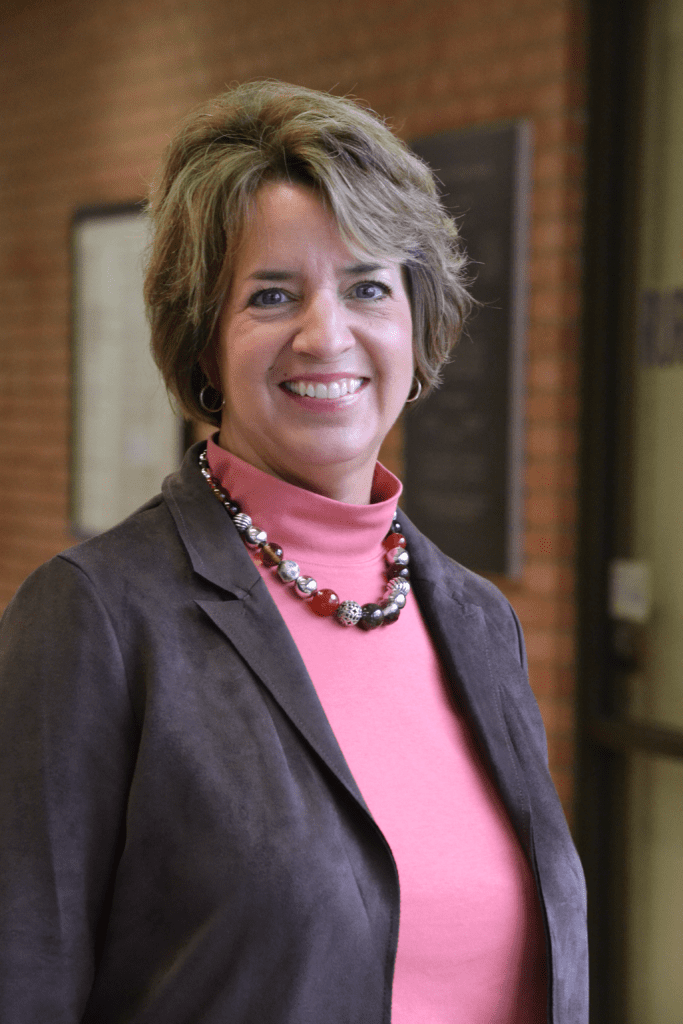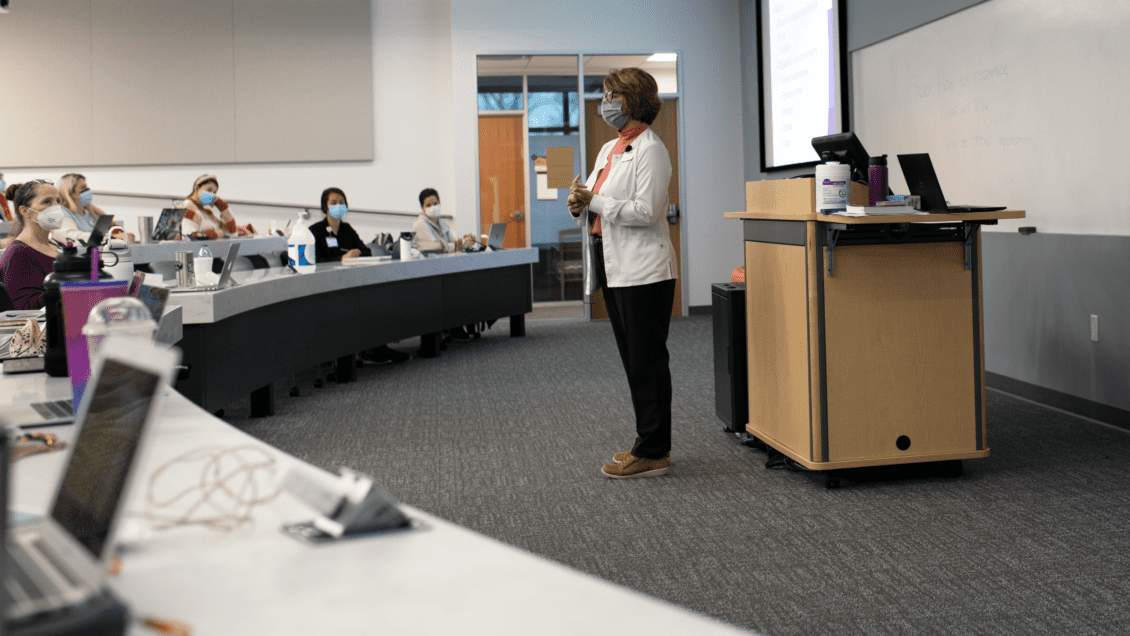Tracy Fasolino, a Clemson University School of Nursing associate professor, has been selected as one of 10 palliative care leaders nationwide for the Cambia Health Foundation 2021 Sojourns Scholar Leadership Program.
This flagship program of Cambia Health Foundation is designed to cultivate and advance the next generation of palliative care leaders. Each Sojourns® Scholar receives $180,000 in funding to conduct an innovative clinical, policy, educational, health equity or systems project focused on elevating palliative care. Scholars develop networks with previous scholars and leaders while being mentored by local, national and international leaders for professional development.
“Becoming a Cambia Sojourns Scholar will allow me protected time to partner with other passionate palliative care leaders in research, education and policy. Collectively, we will work on palliative care initiatives – creating a collective voice to bring greater awareness of unmet patients and caregivers needs,” Fasolino said.
Fasolino’s project focuses on the inequality of access to palliative care in rural Appalachia, specifically gaps in service for patients with chronic obstructive pulmonary disease (COPD) and their caregivers. COPD affects more than 16 million Americans with mortality rates nearly at 40 percent, according to the Centers for Disease Control and Prevention. While in Appalachia, mortality rates are 27 percent higher than the national average. Because of this disparity, Fasolino focuses her project within the Appalachian region, which covers 13 states and 420 counties from southern New York to northern Mississippi. This region also includes six South Carolina Upstate counties.
Patients in rural areas have less access to specialists so they rely on their primary care providers for their disease management.
“The goal for this Sojourns project is that palliative care will become woven into the Appalachian providers’ philosophy of care and integral in their practice,” Fasolino said.
Fasolino’s project consists of education and coaching on palliative care management for COPD patients coupled with advocacy initiatives. Using nurse-led modules, primary care teams will be introduced to palliative care, presented with symptom management strategies for patients with COPD, and followed by one-on-one coaching sessions to reinforce the provider’s new knowledge.

Fasolino will work with local, state and national policymakers to advocate and support the needs of rural providers and their patients. She plans to build and lead a team of palliative care clinical champions in the national COPD and palliative care space.
School of Nursing Director Kathleen Valentine said that Fasolino has a long history of exceptional academic leadership, which will serve her well in Sojourns Scholars program.
“We, at the School of Nursing, are so proud of the work Dr. Fasolino will be doing through this leadership program,” Valentine said. “Dr. Fasolino will integrate her scholarship of practice, teaching, and research to elevate the significance of policy actions to increase access to care for persons with COPD.”
As part of her expanding leadership role, Fasolino will be mentored by national leader Lynn Reinke, Ph.D., RN, the Claire Dumke Ryberg Presidential Endowed Chair in End-of-Life/Palliative Care at the University of Utah College of Nursing as well as Betty Ferrell and Edo Banach, JD, members of the Sojourns Scholar Advisory Board.
Her local leadership mentors include Anne Koci, Clinical Professor and Distinguished Scholar in the Center for Research on Health Disparities at Clemson; Kathleen Valentine, Chief Academic Nursing Officer, Professor and Director of the Clemson University School of Nursing; Ron Gimbel, Director of Clemson Rural Health; and Ahmad Boota, MD, a pulmonary-palliative care physician affiliated with Bon Secours St. Francis Health System.
Leslie Hossfeld, dean of the College of Behavioral, Social and Health Sciences, which houses the School of Nursing, said Fasolino’s work is helping the college reach its mission to build healthy communities.
“This is truly groundbreaking and innovative research that will inform praxis. Dr. Fasolino’s research will help deepen and expand the great work our college is doing in rural health,” Hossfeld said. “It is an incredible honor and recognition of Dr. Fasolino’s reputation as a national leader and expert in in the field.”
Fasolino has long-term plans to continue her work in this field, and her ultimate goal is to build a Center of Excellence for Palliative Care at Clemson University, with a focus on community-based rural care. She has already taken steps towards her leadership goals. Fasolino serves as the South Carolina State Ambassador for the Hospice and Palliative Nurses Association, giving her the opportunity to partner with lobbying groups, state, and national representatives. She is also building partnerships with leaders in South Carolina to serve on workgroups and committees for awareness of COPD needs in rural communities.
Her vision of palliative care is for every patient and caregiver to have access to skilled providers trained in symptom management. Fasolino’s project addresses two barriers: the current palliative care workforce has not grown at the rate needed to close this health care gap, and telehealth is not always an option, as some patients in extremely rural areas do not have access to the internet.
By educating those trusted providers in Appalachia about palliative care, Fasolino intends to close the gap and increase care access for COPD patients and their families.
The Clemson University School of Nursing is part of the College of Behavioral, Social and Health Sciences. Established in July 2016, CBSHS is a 21st-century, land-grant college that combines work in seven disciplines – Communication; Nursing; Parks, Recreation and Tourism Management; Political Science; Psychology; Public Health Sciences; and Sociology, Anthropology and Criminal Justice – to further its mission of “building people and communities” in South Carolina and beyond.
Get in touch and we will connect you with the author or another expert.
Or email us at news@clemson.edu

